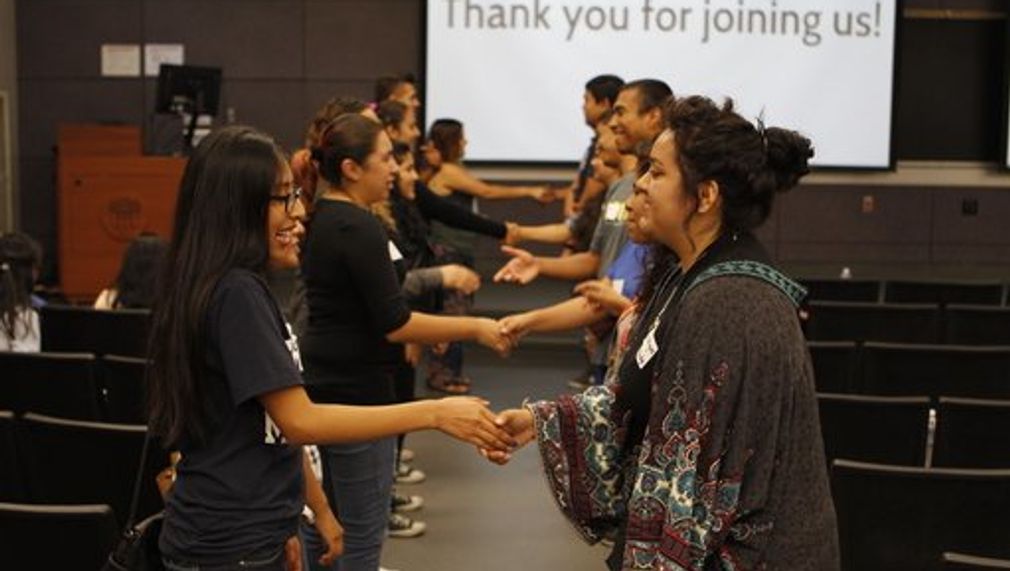Level Up: Students Organizations and Colleges Working Together For College Success!
Students, community-based organizations, and colleges all are working toward the same goal: students graduating from college. Since their goals are aligned, these groups should not work outside of each other; instead, SoCal CAN proposes the coordination of these entities to ensure effective and efficient supports are available for all students.

In what areas of Los Angeles will you be directly working?
Central LA
East LA
San Gabriel Valley
San Fernando Valley
South LA
Westside
South Bay
County of Los Angeles
City of Los Angeles
How do you plan to use these resources to make change?
Engage residents and stakeholders
Expand a pilot or a program
Mobilize for systems change
Advocate with policymakers and leaders
How will your proposal improve the following LEARN metrics?
Percent of community college students completing a certificate, degree, or transfer-related program in six years
College matriculation rates
Describe in greater detail how you will make LA the best place to LEARN.
By 2050, we envision all low-income, first generation students receiving the support they need to not only attend but also graduate from college. We imagine a Los Angeles where students, community-based organizations and colleges work together to ensure that all students are able to access the strongest support services their campus has to offer.
Since 2009, over 1500 students have supported each other to graduation through SoCal CAN’s Level Up program. Within Level Up, students form teams that advocate for each other’s needs and direct each other to valuable on-campus support resources. However, sometimes there are not resources available to meet these needs or those resources are challenging to access. So, we propose that organizations and colleges act more like our students: we propose “teaming up” to better support college students.
To make LA the best place to learn, we will add to our more than 15 community-based organizations that are working in concert to identify effective practices in college success and leverage their collective power to effect institutional change. In the six years of our program, we have seen extraordinary benefits for participants and their students. Coordinated action allows organizations to focus on and build upon their core competencies, not wasting organizational capacity on projects that do not align with their strengths. Coordinated action also yields stronger results as organizations are integrating their core competencies into a collaborative program. Finally, and most importantly, more students can be more effectively served by a coordinated action, as more effective programming means more capacity to serve more people. In order to make our idea a reality, SoCal CAN proposes to integrate 15 new organizations (which translates to 1500 students) into some aspect of the Level Up program.
Community-based organizations should not have to do this work on their own. In order for our idea to succeed, community-based organizations should stop working outside of colleges and rather work in concert with them. Through this partnership, community-based organizations will learn how to effectively prepare students for their time on campus and institutions will learn about the on-the-ground plight of students. In order to make our idea a reality, we will partner with 4 local colleges.
Please explain how you will evaluate your work.
The success of these collaborations must be measured by their effect on the students we serve. In order to ensure that our outcomes are being met, we will track students’ persistence through college by matching our students against the National Student Clearing House. Beyond this basic metric of student success, we will track a series of intermediate data points that we believe will signal whether students are going to successfully persist. We will not solely test how students are rating on these indicators; we will also analyze whether these indicators are effected by our collaborations with community-based organizations and colleges.
Success in this project will also be measured by the number of new partnerships SoCal CAN forms. As a network that thrives when collaboration is deep and purposeful, we will also track a series of data points that ensure that we are not only creating partnerships in name but instead purposeful, productive partnerships.
How can the LA2050 community and other stakeholders help your proposal succeed
Money (financial capital)
Publicity/awareness (social capital)
Community outreach
Network/relationship support